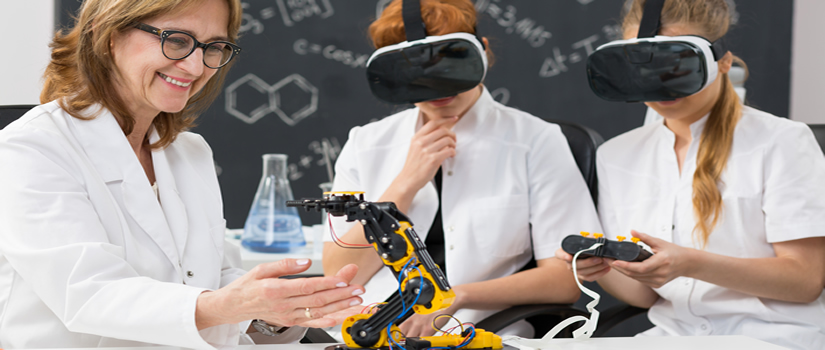2018 - 2019 Recipients
|
Gerald Brasington, Instructor, Biology, College of Arts and Sciences, BIOL 244: Anatomy and Physiology II, Technology: 3D4Medical App with HoloLens Component Gerald Brasington, a Biology instructor, intends to integrate the HoloLens component of the 3D4Medical App in BIOL 244: Anatomy & Physiology II. While he currently uses this app, he is excited about transitioning to the new version with includes the HoloLens technology. He will use the app to create material for his course and will have the ability to build anatomical structures and quizzes with this technology. His goal in utilizing the new technology is to increase student understanding of technical subject matter by allowing users of the app to manipulate information about anatomical structures. Each student can develop a more personal approach to learning the material as well as an individual appreciation of the subject matter. |
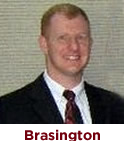 |
|
Tena B. Crews, Associate Provost for Academic Programs and Director of Distributed Learning, Office of Distributed Learning, Office of the Provost, RWTL 330: Asset Protection for Retailers and other courses, Technology: 360o Video Faculty Support Tena B. Crews and other Office of Distributed Learning (ODL) staff members and one faculty member including Trena Houp, Robert Grookett and Karen Edwards, are committed to the project which involves creating, capturing, assessing, and storing 360o videos for use in RETL 330: Asset Protection for Retailers, as well as other courses in this program. With the assistance of this grant, by the end of the academic year 2018-19, ODL will accomplish the following: (a) Work with interested faculty to develop or select appropriate content-specific 360o videos for their courses (at least two videos per course); (b) Create at least three 360o videos targeted to online students addressing the following topics: orientation/introduction to the University, academic support resources available, and accessing library resources; and (c) Develop a repository of 360o videos for faculty to use. The repository will contain at least 15 videos from at least 5 subject areas. The goals of creating this repository of videos and then incorporating 360o videos in coursework are to increase student engagement and interaction with material pertinent to the course and ultimately to increase and expand student learning. |
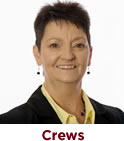 |
|
Stephen Criswell, Professor, Palmetto College, USC Lancaster, ENGL 429: Studies in American Literature: Native American Oral Traditions, Technology: 360o Video Stephen Criswell, Professor with Palmetto College’s USC Lancaster campus, plans to create 360o videos of selected pieces of Catawba Indian pottery. He will use this technology to provide his students with a more authentic concept of the pottery and to enable the students to recognize and appreciate this pottery. Criswell and his colleague, Assistant Professor of Art, Brittany Taylor, will create 360o videos of 20-40 pieces of pottery by prehistoric and contemporary "master potters." These videos will allow students in my online course, as well as those enrolled in Professor Taylor's Art 101: Introduction to Art course, to fully view each pottery piece from all sides. By providing concrete examples of the pottery pieces, targeting their visual senses, and allowing for manipulation of the pottery images, students will be able to actively explore the artwork. This type of presentation and involvement has been proven to improve student engagement and learning outcomes. |
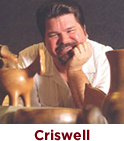 |
|
Robert Dawson, Clinical Assistant Professor, Neuropsychiatry In Behavioral Health/Rehabilitation Counseling, School of Medicine, RCON 700: Foundations of Clinical Rehabilitation Counseling and RCON 725: Career Theories and the World of Work, Technology: 360o Video, Augmented Reality Robert Dawson, Clinical Assistant Professor in the Department of Neuropsychiatry, intends to create instructional materials which consist of a “Virtual Accessibility Tour” experience for both RCON 700 and RCON 725. A Garmin 360o video camera will be used to capture video of “real-world” environments for RCON 700 including the outside of both accessible and inaccessible structures. For RCON 725, video will be captured that included the environments at a specific business, looking from access to the building to details of the specific workspace where job tasks are performed. The goal of this grant is to expand the student’s awareness and understanding concerning disability issues by utilizing technology to expose students to accessible and inaccessible environments. As our experience grows we plan to expand this to other classes. One future class will be RCON 711, Counseling Practice II. The equipment may also be used during recruiting, ADA Accessibility Day, and activities with our partners in the College of Education. |
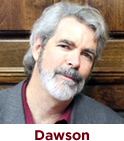 |
|
Lara Ducate, Professor and Lara Lomicka Anderson, Professor, Languages Literature and Culture, College of Arts and Sciences, FREN 209/210 and GERM 210/211, Technology: 360 Video Lara Ducate and Lara Lomicka, Professors in Arts and Sciences, will create 360o videos while traveling abroad in spring 2019 and use them in French 209/210 in fall 2019. In addition to utilizing the videos in the French course, students will also take 360o videos of Columbia to share with a partner class in France. When the French students return from their study abroad trips, they will edit the videos so that they have appropriate lengths and contents for our classes. Integrating this technology into these classes will serve to expose students to more authentic cultural scenes through 360o video and virtual reality. Many students have never travelled to the country they are studying, and therefore cannot envision what it is like there. Being immersed in 360o video will help them to experience a street scene or marketplace almost as if they were standing in the square. Students will be able to notice similarities and differences between what they see in the 360o videos and at home. Students will therefore improve their intercultural understandings through the observational activities we will do in class and through class discussions. |
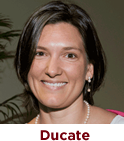 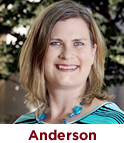 |
|
Kirk Fiedler, Associate Professor, Management Science, Moore School of Business, MGSC 390: Business Information Systems, Technology: Augmented Reality, Immersive Virtual Reality Kirk Fiedler, Associate Professor of Management Science, will use this grant to integrate augmented reality and virtual reality technology into MGSC 390, Business Information Systems. MGSC 390 is a course offered to an increasing number of students enrolled in the computer science and engineering program’s CIS degree program and the business analytics certification. In a course concerned with information systems such as MGSC 390, virtual reality has the potential to act as a tool, an illustration and a topic in support of course learning objectives. The grant will allow the students access to the Oculus Go VR interface. This standalone system is the most economic and efficient entry into an immersive virtual reality. The students will be exposed to availability and implications of the virtual environments of augmented reality and virtual reality through established applications and group |
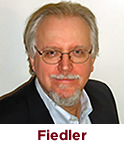 |
|
Miyoung Jeong, Professor and Sandy Strick, Associate Professor, School of Hospitality and Tourism Management, College of Hospitality, Retail, and Sport Management, HRTM 364: Conference & Meeting Planning, Technology: 360o Video Miyoung Jeong and Sandy Strick plan to develop 360o virtual experience videos to showcase tradeshows and exhibitions. These video experiences will become a required component for HRTM 364. The 360o video camera and the resulting videos employed in HRTM 364 will enhance student learning outcomes through active and experiential learning. Students will go from learning about tradeshows and exhibitions to learning how to produce and evaluate tradeshows and exhibitions. Additionally, special events, business meetings, conferences and conventions would all be viable topics for 360o video. Thus, the long-term use of the 360o video equipment has a great deal of potential for students enrolled in HRTM 364 and other courses offered in this program. |
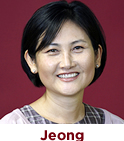 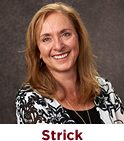 |
|
Ann Blair Kennedy, Clinical Assistant Professor, Biomedical Sciences/Division of Behavioral, Social, and Population Health, School of Medicine Greenville, GMEDG 601: Integrated Practice of Medicine, Technology: 360o Video, Augmented Reality, Immersive Virtual Reality Ann Blair Kennedy, clinical assistant professor of biomedical science, plans to integrate immersive virtual reality by having students using VR viewers to watch 360o videos. She considers Autism TIM Virtual Reality Experience to be a prime example of content to develop for GMEDG 601: Integrated Practice of Medicine. Students will create projects that can utilize 360o video, AR, and VR technology. Benefits to students include providing immersive experiences to increase medical students’ ability to empathize and better understand their future patients. Having students create study material in a multi-media format of their choosing allows for them to creatively explore topics that they will have to internalize for future testing and practice of medicine. She also plans to work on creating an augmented reality game/app that helps people discover their implicit biases by having them identify individuals opposite of their stereotypes. Additionally, if sufficient 360o videos are not readily available, then the next step would be to create videos to explore cultural competence. |
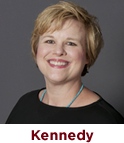 |
|
Brian Mihalik, William McFall "Mac" Pearce Professor and Center Director, School of Hospitality and Tourism Management, Sport and Entertainment Management, College of Hospitality, Retail and Sport Management, HRTM 280: Foundations of Tourism, Technology: 360o Video, VIRB Editing Software Brian Mihalik will instruct 30 students on the use of the Garmin camera and the VIRB editing tool. These students will be enrolled in HRTM 280: Foundations of Tourism during the spring of 2019. After receiving this training, students will be assigned to teams for the purpose of producing, shooting, and editing a 60-90 second, 360o video using 360o Garmin cameras and the Garmin VIRB editing software. The student teams will select local tourism attractions or local tourism events for their focus. Students will demonstrate through their videos how this technology can be used to capture unique aspects of tourism and create a medium for tourism understanding and strategic marketing and promotion. School of HRTM students who seek careers in destination management, resort operations, convention and visitor bureaus, etc. often are asked to develop strategic marketing plans for their employers. The uses of film, print materials, on-line resources, etc. are all tools that are currently employed to increase visitation and visitor satisfaction. After completing this 360o video exercise, these HRTM students will be knowledgeable in another tool to enhance their future employment opportunities. These students will be familiar with the benefits and challenges of 360o video when used as one part of an overall strategic tourism marketing plan. |
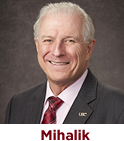 |
|
Katherine Ryker, Assistant Professor, School of the Earth, Ocean and Environment, College of Arts and Sciences, GEOL 103: Environment of the Earth, Technology: 360o Video Katherine Ryker, assistant professor of geology, will add a series of at least ten 360o photos and videos of geologic environments from around the Carolinas to enhance the learning experience of students enrolled in GEOL 103: Environment of the Earth. Once the students are trained and are acclimated to the 360o video technology, they will integrate the 360o video with actual visits to geologic sites. Thus, they will view 360o video taken alongside a river, look along it, and identify locations of different features (e.g. cut bars, point banks, meanders). The goals of this project are to increase student confidence in identifying geologic features and processes in their local environment and to identify geology as relevant to their daily lives. The current course uses a similar process with standard 2D photos and videos. Katherine will compare the impact of these using an end-of-course retrospective post-then-pre-survey for classes using either 2D or 360o imagery. |
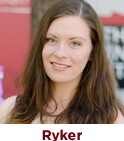 |
|
Amanda Schlegel, Assistant Professor of Music Education, Music Education, School of Music, MUED 200: Music Education Practicum and MUED 551: The Middle School Band, Technology: 360o Video Amanda Schlegel intends to create virtual reality environments that will enable observation opportunities for pre-service music education majors. The 360o videos will provide opportunities for diversifying the school and musical settings because virtual reality environments will be produced in locations well beyond the typical proximity of campus. The use of the videos will enhance the learning opportunities by allowing the instructor to review the observations with the students and to reflect on pedagogical approaches. Schlegel will use the GoPro Fusion Camera, GoPro 3-way mount, and Zoom H3-VR 360 audio recorder to create virtual reality environments. These tools allow for the capture of 360o video and audio. Students will interact with these environments through the use of Oculus Go goggles and controller. The goals are to improve music teaching outcomes with the application of virtual and augmented realities. |
 |
|
Raymond Torres, Professor, School of the Earth, Ocean and Environment, College of Arts and Sciences, GEOL 315: Surface and Near Surface Processes, Technology: 360o Video, Augmented Reality, Immersive Virtual Reality Raymond Torres proposed the use of a 360ocamera and Unity software to integrate new course material in his GEOL: 315 class. GEOL 315 is course that covers the topics of landscapes and landscape development. The ability to communicate with students about landscapes in virtual environments represents an immensely powerful and communicative tool. To be able to conduct labs on landscapes that are not readily accessible will improve both the breadth and quality of higher geoscience education. Torres intends to develop specific VR labs that will be used each time the class is offered. The plan is to use augmented reality, superimposed onto virtual reality. A measurable goal for the students is a new and detailed understanding of an important and widely distributed set of landscape processes and attributes. |
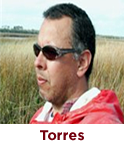 |
